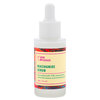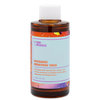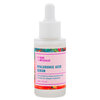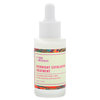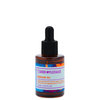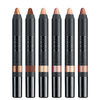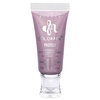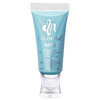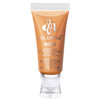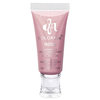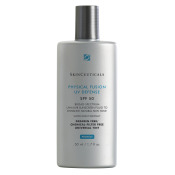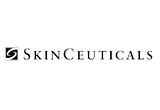
Current high-tech trends dictate that smaller is better. We covet slim smartphones, light-as-air laptops, and compact cameras, but does the same principle hold true for skin care? The study of nano-sized technology has grown exponentially in the past few decades, and scientists are in the early stages of testing its ability to create lighter, more cosmetically elegant skin care and sunscreen. However, safety controversy surrounds the “nano-particle” buzzword, and much is still unknown.
Nano-particles are classified as particles measuring between one and 100 nanometers. For some perspective, one nanometer is a billionth of a meter, or approximately .07 percent the width of a single human hair—it’s tiny. Scientists and chemists are currently focusing the technology on thick physical sunscreens formulated with titanium dioxide and zinc oxide. Because nano-particles are so small, they have the ability to dramatically reduce the thick and pasty consistency of these active ingredients without sacrificing the benefits of a powerful physical blocker.
“It’s a relatively new field of study in dermatology,” says Amy Derick, M.D., instructor of clinical dermatology at Northwestern University. “There’s a lot we don’t know about nano-particles. We’re still studying their absorption properties in skin and water and how humans react to them when inhaled.” The FDA is still researching the technology, and no packaging regulations currently indicate whether a product is formulated with nano-particles. The Academy of Dermatology has released some preliminary research on the topic, and supports the use of nano-particles in skin care. According to their studies, the formula stays in the superficial layer of the skin called the stratum corneum. However, some opponents fear that these tiny particles are actually small enough to penetrate the stratum corneum and get into the brain, potentially damaging healthy cells.
This kind of technology can be used to create powerful skin protectants that feel light, smooth, and translucent on the face. “If these cosmetically elegant formulations get people to wear sunscreen more, I support it,” says Dr. Derick. While the research is currently focused on sunscreen, labs are also starting to perform preliminary tests on vitamin C and retinol formulas as well.
New nano-particle-formulated products are slowly beginning to make their way to market. Skinceuticals Fusion Physical Defense SPF 50 is one of the first sunscreens to launch, priced at around $30. While the future of this space-age skin care technology is unknown, we’re excited to get rid of the pasty, washed-out sunblock of the past.

Amy Derick, M.D., FAAD is a board-certified dermatologist and instructor of clinical dermatology at Northwestern University, practicing medical and cosmetic dermatology in Barrington, Illinois since 2006. She is the founder and director of Derick Dermatology, LLC, which serves the dermatologic needs of nearly 16,000 patients throughout the Chicago region.
Featured Products
You Might Also Like
-

Expert Skin Care Advice
5 Skin Misconceptions
- 175
-

Sun Protection
FDA Sunscreen Update Part 1: Is SPF 30 enough?
- 40
-

Skincare
Which Vitamins Should You Take?
- 630
-

Expert Skin Care Advice
De-Stress Your Skin During Exams
- 419
-
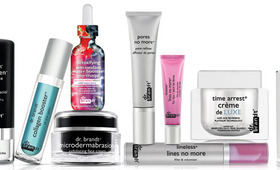
Expert Skin Care Advice
Ask Dr. Brandt a Question!
- 43
-

Face Skincare
Best Skincare for Chemo Patients According to Cancer Survivor
- 1
-

Expert Skin Care Advice
Discover Your Sexiest Week of the Month!
- 218
-

Expert Skin Care Advice
What's That Spot?
- 32



 Amy Derick, M.D., FAAD is a board-certified dermatologist and instructor of clinical dermatology at Northwestern University, practicing medical and cosmetic dermatology in Barrington, Illinois since 2006. She is the founder and director of Derick Dermatology, LLC, which serves the dermatologic needs of nearly 16,000 patients throughout the Chicago region.
Amy Derick, M.D., FAAD is a board-certified dermatologist and instructor of clinical dermatology at Northwestern University, practicing medical and cosmetic dermatology in Barrington, Illinois since 2006. She is the founder and director of Derick Dermatology, LLC, which serves the dermatologic needs of nearly 16,000 patients throughout the Chicago region.